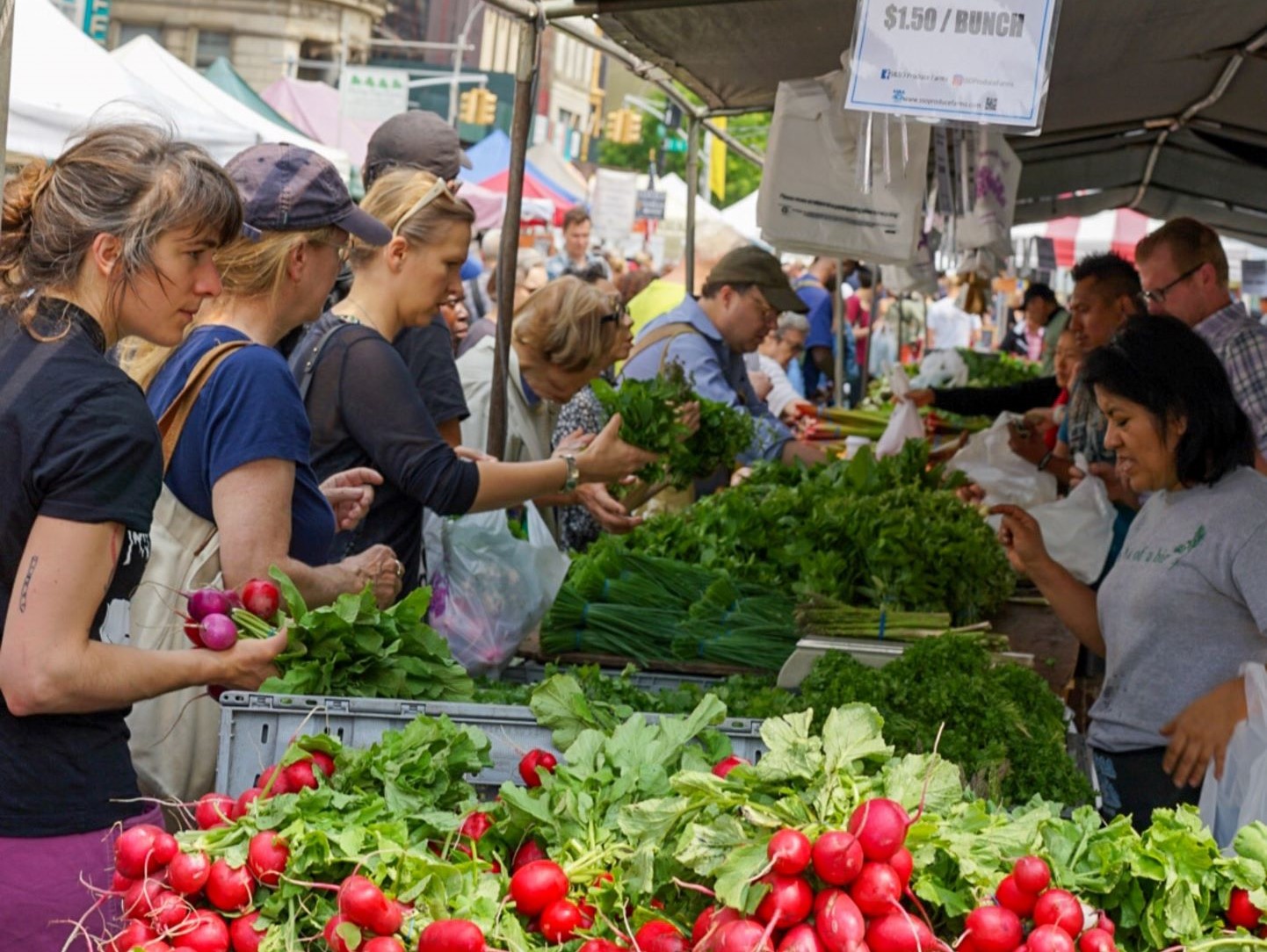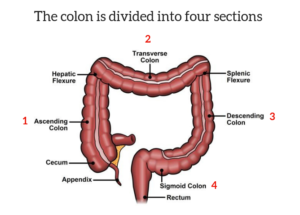
Not all foods are created equal, especially when it comes to our health. While many foods are beneficial, others can put us at increased risk for a variety of cancers. And with more Americans – particularly younger Americans – opting for processed foods, the incidence of certain cancers is on the rise.
According to Dr. Anton Bilchik, professor of surgery and director of Gastrointestinal and Hepatobiliary Program at the Saint John’s Cancer Institute, the number of new cases of colorectal cancer has skyrocketed among millennials in recent years, a trend thought to be the result of eating too much sugar, too few fruits, vegetables and little exercise. However, research has shown that this trend can be reversed with improved dietary habits and by maintaining a healthy weight.
Here’s how nutrition can play a key role in preventing colorectal cancer and how you can optimize your colon health.
Understanding the Colon

- Ascending colon
- Transverse colon
- Descending or left colon
- Sigmoid Colon, which connects to the rectum
Each part of the colon plays an important role in removing waste from a person’s system. After food is broken down into liquid while in the small bowel, it moves into the colon. The colon then absorbs water and nutrients from the food and breaks down remaining materials. The leftover material is moved to the rectum for excretion.
A healthy colon will help your body get rid of waste that it no longer needs. When problems arise, you may experience minor discomforts such as gas and bloating.
But sometimes, more serious issues such as colorectal cancer can occur. Research has shown that diet and lifestyle factors can affect your colon health.
Colorectal Cancer: Risk Reduction Lifestyle
Despite an overall decline nationally, in 2013, 11% of colorectal cancer diagnosis were in people younger than 50, compared with 5% in 1990. According to American Cancer Society for those who do not use tobacco, physical activity, dietary patterns and healthy weight are the most important modifiable factors of cancer risk.
Lifestyle tips for decreasing the risk of colorectal cancer:
- Sitting is the new Smoking – Limit screen/computer time and balance sedentary time with a 10-15 minute walk.
- Engage in regular physical activity – 150 minutes / week of moderate-intensity, aerobic physical activity: walking, cycling, household chores, gardening, swimming, dancing. Or 75 minutes / week of vigorous, aerobic physical activity: running, fast swimming, fast cycling, aerobics, or team sports are some good options.
- Avoid consuming a Western dietary pattern (e.g. large amount of high-fat meat, processed foods, refined carbohydrates, energy dense food and alcohol).
- Do not eat charred meats. If you do grill, marinate the meat and avoid the flame touching the meats.
- Incorporate plant-based, fiber -rich meals more often.
- Achieve and maintain a healthy body weight. Body fatness is associated with increased risk of colorectal cancer.
Food & nutrients decreasing risk of colorectal cancer:
- Whole grains: wheat, barley, rice, buckwheat, oats, quinoa, rye, sorghum, spelt
- Fiber- rich foods (25-35 grams a day); beans, lentils, non-starchy vegetables, fruits, whole grains
- Food containing carotene: red & yellow peppers, kale, spinach, squash, apricots, carrots
- Food containing Vitamin A: salmon, mackerel, cod liver oil, bluefin tuna, goat cheese, trout, eggs
- Food containing Vitamin C: broccoli, brussels sprouts, cauliflower, tomato & tomato juice, winter squash
- Food containing Calcium: low fat dairy products, seeds (chia seeds, sesame), beans , lentils, tofu, edamame
Food & nutrients increasing risk of colorectal cancer:
- Alcohol consumption of any amount is associated with increased risk of colorectal cancer. If you do decide to drink alcohol, follow recommendations:
- No more than one drink a day for women.
- No more than two drinks a day for men.
- One drink is 12-ounces beer, 5-ounces glass of wine or 1 ½ ounces of hard liquor.
- Red meat (beef, pork, lamb): limit consumption to no more than three times a week (no more than 18 ounces a week).
- Processed foods: hot dogs, bacon, sausage, ham, sliced turkey, deli meats, include preservatives. Avoid processed foods.
In addition to eating for a healthy colon, there are other lifestyle modifications that can aid in cancer prevention. The American Cancer Society recommends maintaining a healthy weight, increasing exercise and limiting smoking and alcohol consumption. Screenings starting at age 45 can also find colorectal cancer early, when the cancer is easier to treat.
Diet and Nutritional Support Services
Making changes to your diet can be difficult. Luckily, we offer cancer nutritional counseling with registered dietitians.
Be sure to take advantage of our free monthly nutrition classes to help you reach your goals. Classes are open to the community and are a great way to learn about cancer prevention through diet and lifestyle management. Whether you are currently going through cancer treatment or have a family member or loved one that is going through this battle, this class is for you.
Date: Every 3rd Thursday of the month
Time: 12:00pm – 1:00pm
Location: Providence Saint John’s 2121 Santa Monica Boulevard, Santa Monica, CA 90404 in the CSS4 Conference Room.
Register for classes now and let us support your journey to a healthier colon!
Register
References:
- American Cancer Society https://www.cancer.org/cancer/colon-rectal-cancer/causes-risks-prevention/prevention.html
- World Cancer Research Fund & American Institute for Cancer Research https://www.wcrf.org/dietandcancer
- Academy of Nutrition and Dietetics https://www.eatright.org/
- Food and nutrition https://foodandnutrition.org/

